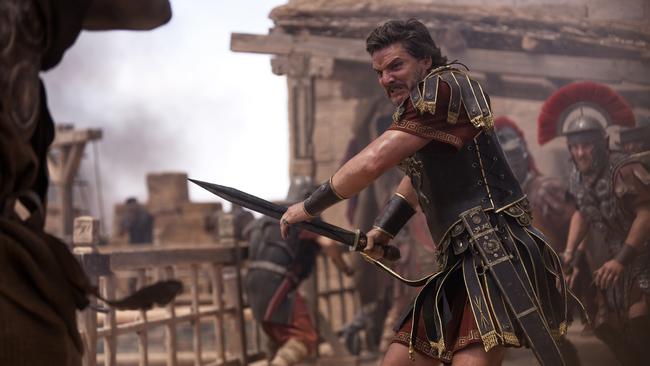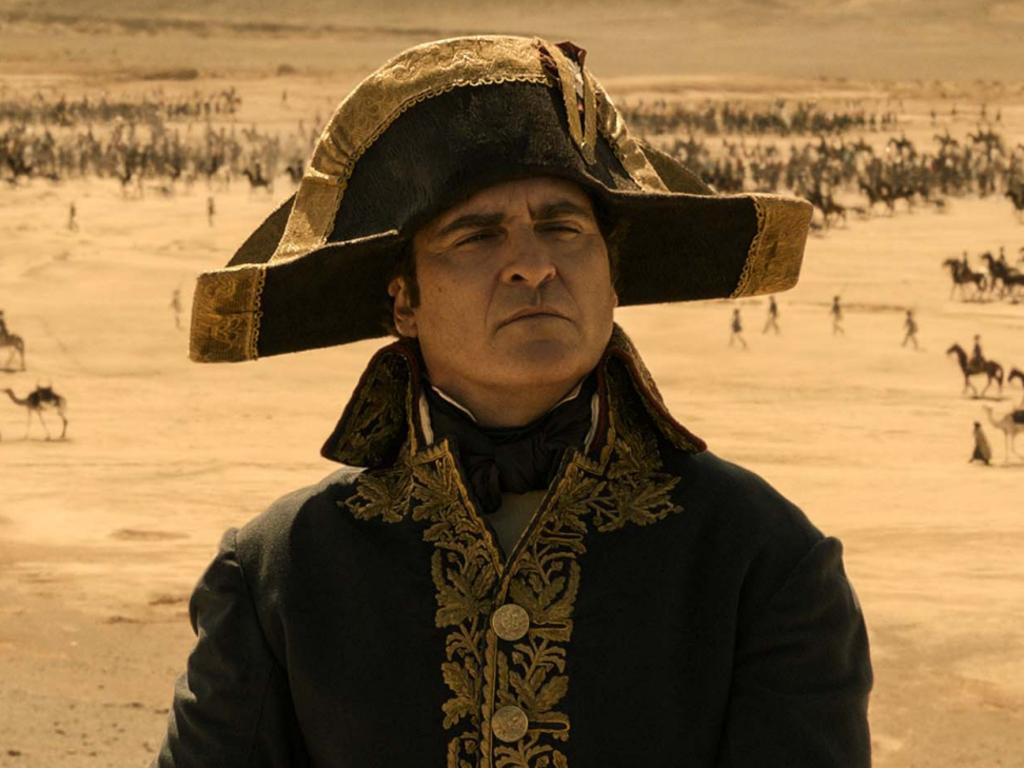‘Are you not entertained?’: Crowe’s words echo what is missing from the Gladiator sequel
This is Paul Mescal’s sword and sandals Hollywood epic, as it was for the Oscar-winning Russell Crowe in 2000. Let’s start with the film’s strengths ...

Strength and honour, first spoken by Russell Crowe in 2000 and repeated by Paul Mescal in 2024, is the mantra of the Gladiator movies directed by British film-maker Ridley Scott.
Let’s start with the strengths of Gladiator II, set in Rome in 200AD, a generation after the Oscar-winning original. As in Francis Ford’s Coppola’s Megalopolis, in cinemas now, it’s an empire that is rotting from the head.

The opening battle scene, in which shiploads of Roman soldiers assail a fortress in the province of Africa Nova, is highly dramatic and visually spectacular. Just when you thought you’d run out of reasons to avoid being a galley slave, Scott and his visual effects team come up with a new one.
It’s in this attack, led by conflicted Roman general Marcus Acacius (Pedro Pascal), that the gladiator-to-be (Mescal) is captured. The Irish actor has bulked up for the role and is impressive throughout.

His character is driven by rage but he controls it with a quiet authority that makes him a leader of men. This is Mescal’s sword and sandals Hollywood epic, as it was for the Oscar-winning Crowe in 2000.
His character has strong links to Crowe’s Maximus, which readers who have read about the film will know but I will withhold for the readers who have not. There are enough spoilers to fill a colosseum in the pre-release publicity.
Speaking of which, the first stoush in the Roman Colosseum, between Mescal and a baboon, is terrific. The baboon bites and is bitten back. “This one is interesting,’’ observes the sly and shifty Macrinus (Denzel Washington, having fun in the role), who runs a stable of gladiators.
Later, as has been publicised, Scott does what he didn’t have the budget to do in 2000: put a rhinoceros in the Colosseum. This man versus beast battle, too, is heart-racing to watch.
Macrinus has his own plans for Rome, as do General Acacius and his wife Lucilla (Connie Nielsen, returning from the original), the daughter of the revered Marcus Aurelius, who may have originated the strength and honour code.

The twin brother emperors, Geta (Joseph Quinn) and Caracalla (Fred Hechinger), are mad, bad and dangerous to know. Mescal’s character has one aim: to kill the general.
The honour is to the original and this is a strength and a weakness. There are some nice moments, as when Mescal grabs handfuls of grit from the Colosseum floor, as Crowe did, but most of the looking-back-in-tribute moments are laborious.
The main weakness is the script, written by David Scarpa, who wrote Scott’s 2023 biographical drama Napoleon, especially in terms of character development. Nick Cave’s script, delivered first, was reportedly “unfilmable”.
All the main characters have compelling stories behind them, but they are not realised in an emotionally satisfying way. In short, I couldn’t care less what happened to any of them.
Which, as it turns out, is not a bad attitude to have, as the plot narrows to the question of who will fight who. Will Mescal fight Pascal? Will he fight Washington? Will Washington fight Pascal?
Will someone please fight Emperor Caraculla’s pet monkey, who, in a decent Caligula moment, is appointed consul. As this overlong film dragged on I started hoping main characters would die, as that would take us nearer to the end.
Mescal’s gladiator recites Virgil from memory, but his rallying cries to his fellow fighters are cliched. “Where we are, death is not!,’’ he shouts as they prepare to kill and be killed, which is sort of ignoring the obvious. There’s no St Crispin’s Day speech here, delivered so well by Kenneth Branagh in the 1989 adaptation of Shakespeare’s Henry V.
“Violence is the universal language,’’ Macrinus notes at one point. It becomes the main language of this film too. At its best it’s a put-them-to-the-sword epic that’s entertaining to look at.
It is not as good as the original, which has a more complex story line that makes you care about the characters when they’re in the Colosseum and out of it. “Are you not entertained?” Crowe asks the crowd in the original. His words have a deeper meaning and that sort of nuance is what is missing from the sequel.
Gladiator (M)
150 Minutes
In cinemas





To join the conversation, please log in. Don't have an account? Register
Join the conversation, you are commenting as Logout